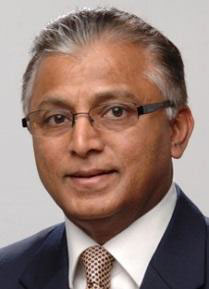- Cash flow
- Pricing and Gross margin
- Expense review
- Reports
- Forecasting & Budgeting
- Employee training
Let’s look at each:-
- Understanding and managing inflows and outflows of cash, actively is a key necessity. Where does your money come from and how is it spent? Do not confuse this understanding with the Profit (or loss) of your business where you calculate the difference between Sales and expenses. In cash flow you are looking at the timing of monies earned and spent, and the amounts concurrently – otherwise called liquidity. Please have a good and deep understanding of your AR collections, cash and credit card sales. Know that when invoices get paid, there could be unknown/unauthorized charges that “dilute” your collections and reduce expected amounts. Likewise know the “drop dead” dates of your important payments – Salaries and rents. These cannot be postponed. When all of this is done formally and forecast, you will avoid anxiety and plan for any shortfalls in advance.
- Pricing and Gross Margins – Every month know the Gross Margin you are earning on your Sales – the difference between your sales and direct costs. Track this margin and it will tell you the earnings you have, to meet all other expenses and have a net profit. Look at margins individually for your top ten customers – varied pricing policy, bring out different margins. Track it by top ten products and again you will get a deeper understanding. Find ways to preserve or improve the Gross Margins. Be careful of discounts – a 10% discount on Sales will amount to a lot more for your Margin and may even cause a loss! When paying sales commissions, pay on discounted prices.
- Expense review – Twice a year do a top down expense review. The mindset here is, if you were starting your business new, will you be incurring this cost? Assume all your costs are variable. Also, you are not looking for only price anomalies, but relationship anomalies. What does this mean? For example, no matter how low your rent cost per square feet is, if it is 50% of your Sales then there is a problem. Such thinking aligns your resources, with its – Sales.
- Reports – Good and timely information drive good decisions. Move from instinct to insight by knowing what information you need daily, periodically (weekly, monthly, quarterly) and ad hoc. Design a set of key metrics that will let you keep your pulse on the business. This can be information of Sales, AR, cash collections, employee turnover etc. but it has to be thought out and customized for your business.
- Forecasting &Budgeting – Most small and medium sized businesses do not do this or start (and stop) with a P&L budget. Do this well and you will have roadmap of your business? Work out your Sales, direct and fixed costs and make a P&L budget. Also, go one important step further and work out a Balance Sheet and cash flow budget. Many think that a P&L is enough, it is not. A Balance Sheet tells you if your budgeted P&L can be supported with the investment. You may be doubling your Sales in your Budget, but will you be able to support this with increased working capital investment? The Balance Sheet provides reality to your optimism. Another important point, keep the format and description of you Budgets the same as your financial reports; this makes it easier to go from history to future in a seamless way.
- Employee learning and training – Do this, it is a sure road to improved productivity. In doing accounting work, a majority of the time is spent on data entry and collating. Then it is to produce ad hoc or periodic reports. All this can be improved, if you consciously introduce new work methods, products and services, that does electronic downloads, speeds up manual work and makes repetitive work automated. Then retrain your employees to be more analytical – what are these reports telling us? With this they will improve in their job satisfaction and be more alert to anomalies.
– See more at: http://www.msncfo.com/msnBlog_October152012#sthash.LgRxDEPj.dpuf




